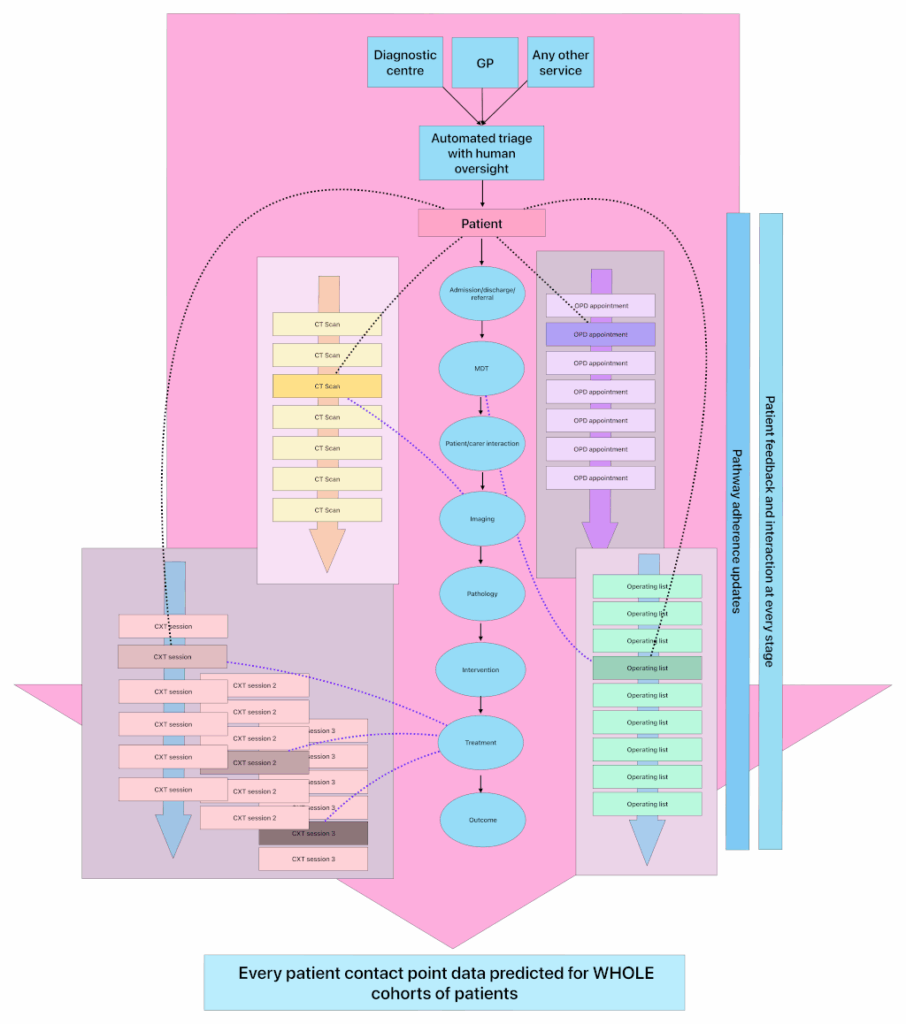Principles that can be applied to every clinical workflow for the benefit of the individual, cohort and population

When a child or adult is diagnosed with cancer (or a condition that might lead to cancer) information about them is collected in a database about cancer diagnoses and their treatment.
The is known as a cancer registry and it is used to understand cancer in more detail. It can demonstrate
How many people are diagnosed with different types of cancer
What treatments they have
How well these treatments work
This type of data is important for planning and improving health and care services. It is especially important when considering the rare types of cancer, where information is relatively scarce.
Data collection and analysis helps to ensure that people living with cancer get the best possible care, support and survivorship.
Sofia Cancer Care® uniquely can provide workflow management for both individuals and entire cohorts of patients.
This is achieved with clinicianled, middleware management of disparate cancer information sources. Not only does Sofia Cancer Care® automate and probabilistically schedule patient care points, investigations and treatments, it also provides healthcare systems with probabilistic resourcing information. This is critical to the optimal delivery of care.
Great user experience and user interface
Reliable and accurate systems of data entry including voice scribe validation
High quality referral processes inside and outside system
Integrated MDT scheduling and prioritisation according to user defined criteria
Comprehensive patient tracking within entire pathway
In-built tumour staging engine
Data validation at the point of entry including voice scribe
Data integrity throughout system with internal and external data consistency
Use of data for identification of patient workflow optimization
Ai triage with human oversight of patient data entry into system
Use of data for intelligent pathway decisioning
Aggregated decisioning for managers and clinicians
Interface for patient apps with benefit for patients and their ease of access
Mobile device accessible
Ai based analytics platform
Interoperability with other systems
Extendable framework with ability to integrate third party solutions
Integrated R&D support
Intelligent patient scheduling for investigations and therapeutic intervention
Probabilistic scheduling for all logistic support
Modular design allows patient information storage and interface with the EPR
Modular design that promotes accurate task completion by clinical staff, management and admin staff
Modular design that promotes accurate recording of costs and billing processes
Prediction of future activity
Workforce and resource planning